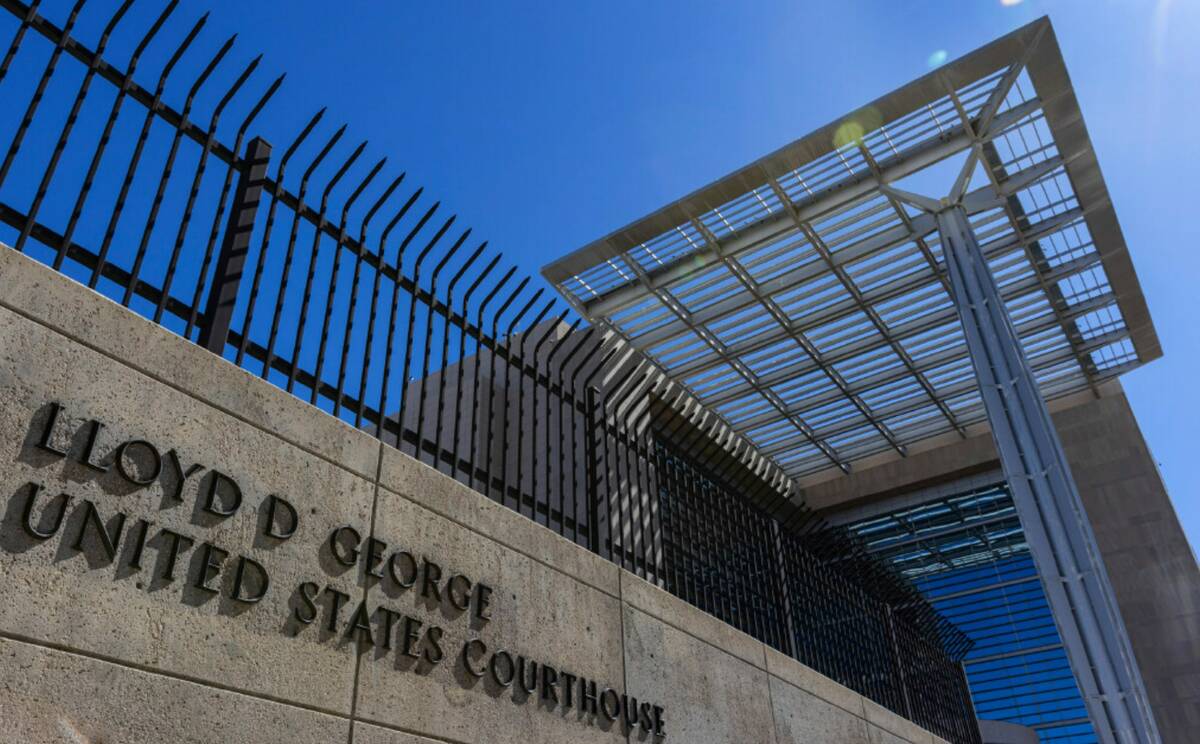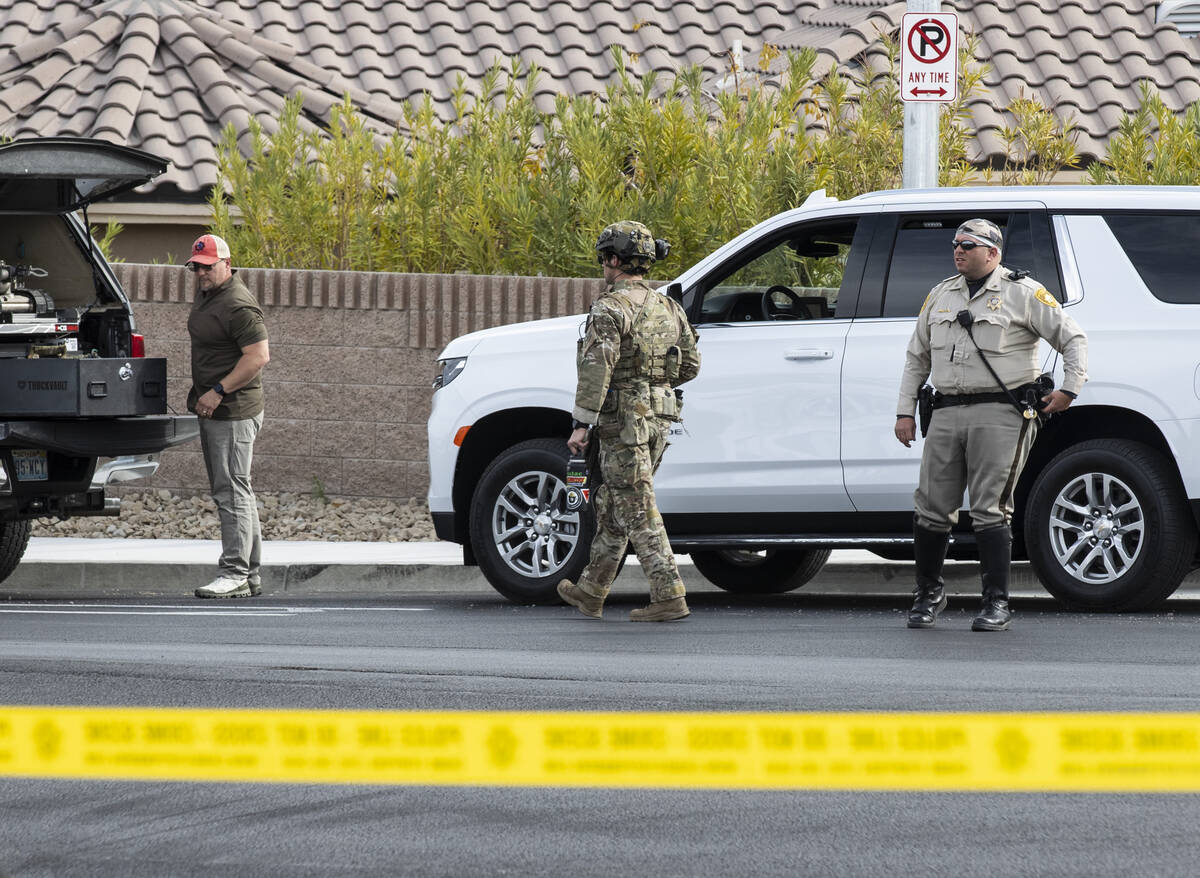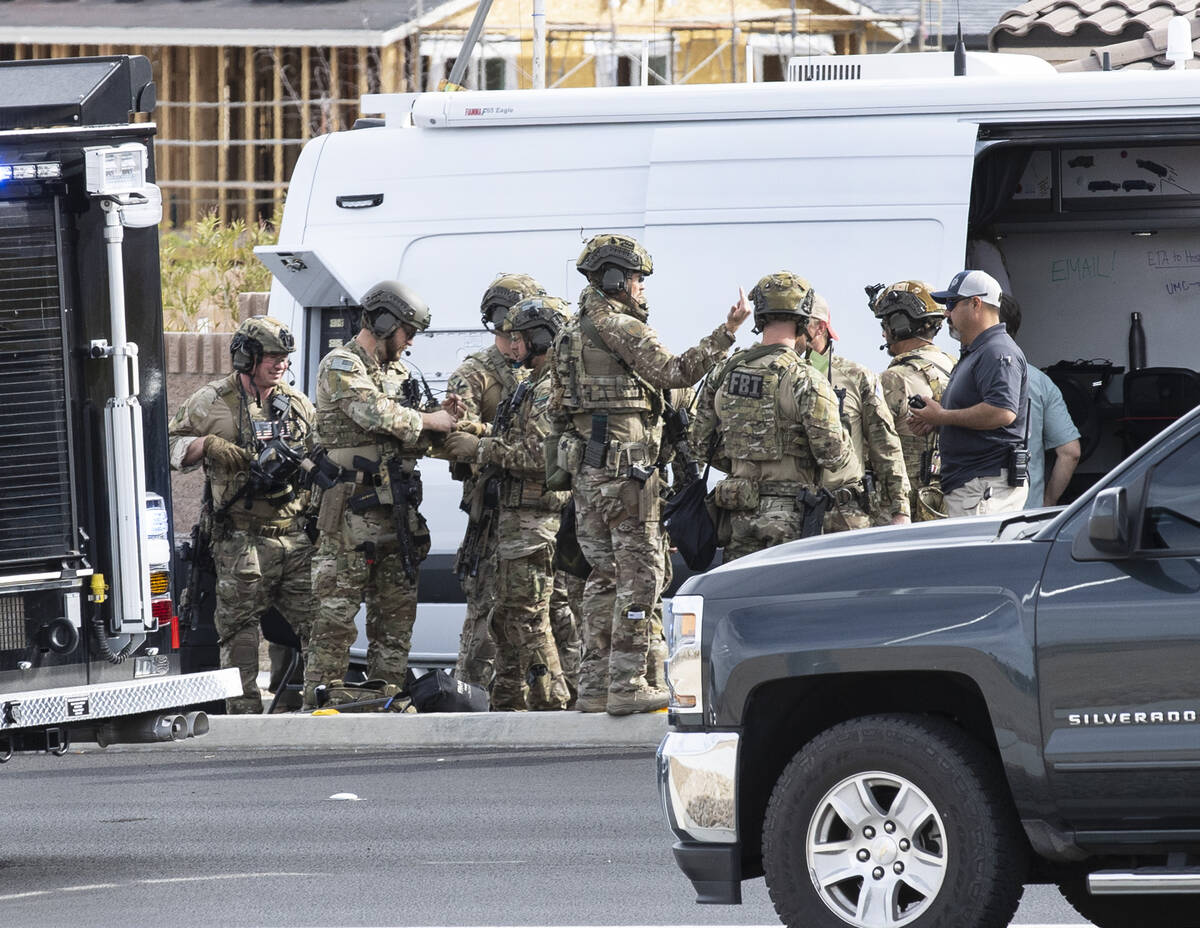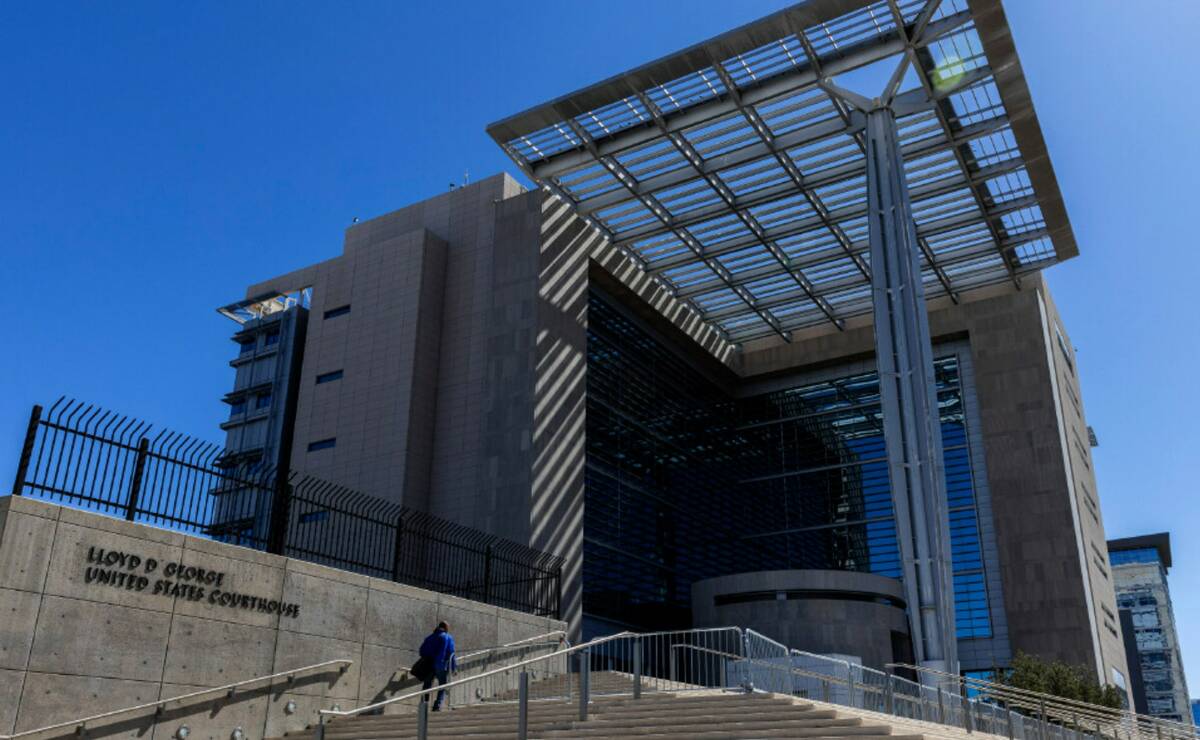Las Vegas attorney to remain in custody in Ponzi scheme case
A Las Vegas attorney accused of operating a multimillion-dollar Ponzi scheme will remain in custody over the weekend despite a judge’s ruling to grant him release.
Matthew Beasley, 50, appeared in federal court Friday afternoon for a detention hearing where U.S. Magistrate Judge Cam Ferenbach ordered that Beasley be released from custody with conditions.
Prosecutor Daniel Schiess, an assistant U.S. Attorney, asked Ferenbach to stay his order of release to give prosecutors time to file a motion appealing his decision to district court. Ferenbach stayed the order for release until 3 p.m. Monday.
Beasley last week pleaded not guilty to five counts of wire fraud and three counts of money laundering after being indicted for his alleged role in the Ponzi scheme.
From 2017 to March 2022, Beasley falsely represented that he could find personal injury plaintiffs who wanted to borrow money against their settlements and would pay high interests rates to do so. He then created fake contracts to lend money to these plaintiffs and used others to find investors in fake accounts, according to the office of the U.S. attorney for Nevada.
On March 3, 2022, federal agents arrested Beasley at his home in the 5400 block of Ruffian Road, near Ann Road. He came to the door holding a gun to his head and then pointed the gun at agents who then shot Beasley in the chest and head.
One count of assault on a federal officer was dismissed last week.
During the approximately 50-minute hearing, Beasley sat in a gray inmate uniform next to his attorney Jacqueline Tirinnanzi.
Schiess argued that Beasley should continue to remain in custody because the circumstances that the court previously relied on to hold Beasley had not changed. He recapped Beasley’s arrest and cited transcripts of Beasley’s conversation with FBI negotiators during a four-hour standoff.
“When I come out I’ll be dead,” Schiess said of what Beasley told the FBI.
Schiess said Beasley would be a flight risk and a danger to himself and the community.
Tirinnanzi argued that Beasley’s strong ties to the Las Vegas area, including his parents offering him a place to live in Las Vegas, negated the concern that he would flee.
In addition, she said Beasley had not been put on suicide watch during his 13 months in custody and, with a grandchild on the way, was not in the same frame of mind as when he barricaded himself from federal agents.
Prosecutors alleged that Beasley used funds from the scheme to buy luxury homes, cars and recreational vehicles.
The $460 million scheme involved more than 1,000 victims. An investigation by The Washington Post, in partnership with the Las Vegas Review-Journal, found that Beasley and his business partner Jeffrey Judd targeted members of The Church of Jesus Christ of Latter-day Saints.
Tirinnanzi said FBI agents violated Beasley’s Fourth Amendment rights in how they forced their way into his home, and that Beasley pleaded for medical attention while speaking with crisis negotiators.
Schiess responded by saying Tirinnanzi had mischaracterized the transcript that he had provided the defense, at one point turning to ask Tirinnanzi if it was true that he had given her the transcript.
Ferenbach cut him off and admonished Schiess.
“You do not ask another counsel a question on the record in front of me,” Ferenbach said. “Go sit down. Sit down! Just be quiet for a minute.”
Schiess later apologized to Ferenbach and Tirinnanzi.
Tirinnanzi said Beasley had a construction job lined up that would provide him with medical insurance were he to be released. She said Beasley still required treatment from being shot by law enforcement.
Tirinnanzi said Beasley’s father needs help taking care of his mother, whose medical conditions make her reliant on a wheelchair.
When Ferenbach ruled that Beasley could be released with conditions, Beasley’s mother — who was in court with her husband — took out a tissue and wiped tears from her eyes.
“Don’t make decisions. If you have a question in your mind, ‘Is this going to be in compliance, is this going to be a problem?’ Check with your lawyer,” Ferenbach said to Beasley.
Prosecutors have until 3 p.m. Monday to file their appeal. If it is not filed by that time, Beasley will be released from custody. If it is filed, a district court judge will review Ferenbach’s decision to order Beasley’s release.
Tirinnanzi said in a statement that she was pleased with Friday’s decision, which she said was consistent with Beasley’s constitutional rights.
“We look forward to providing Mr. Beasley representation and continuing to ensure his constitutional rights are upheld,” she wrote.
Contact David Wilson at dwilson@reviewjournal.com. Follow @davidwilson_RJ on Twitter.

























